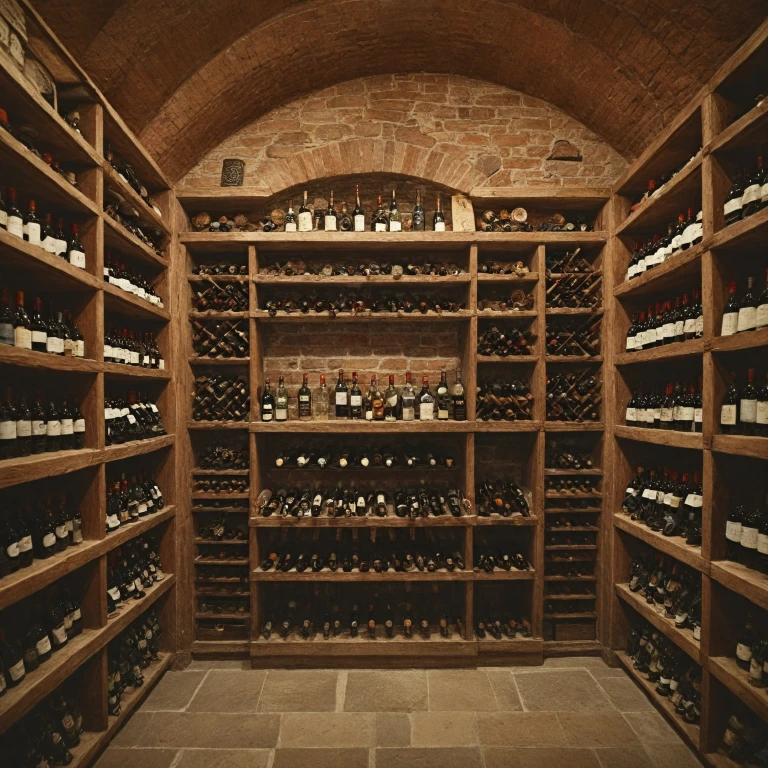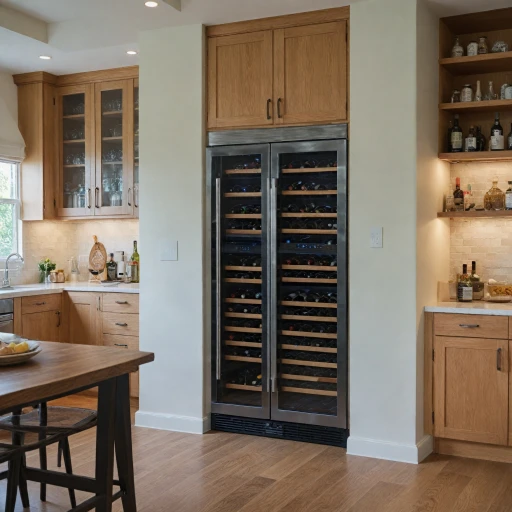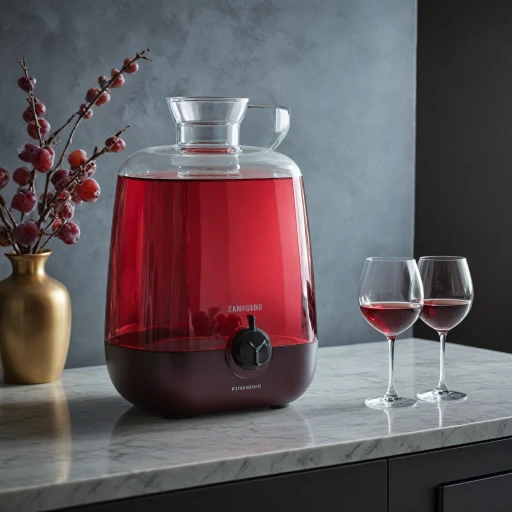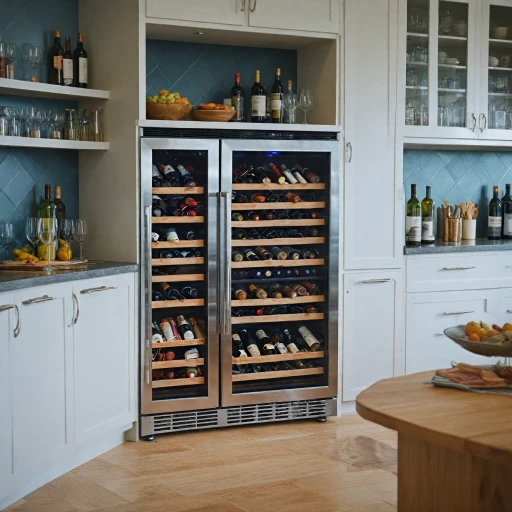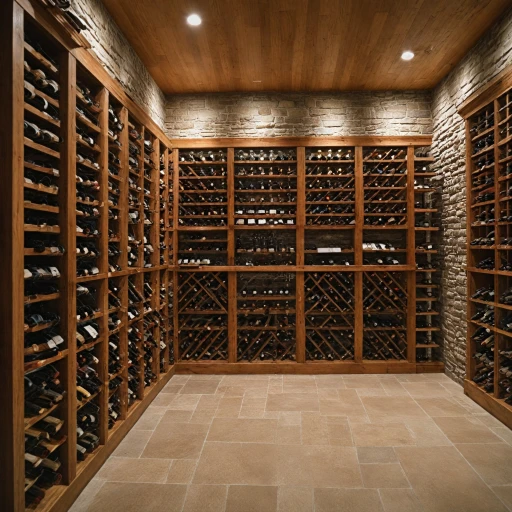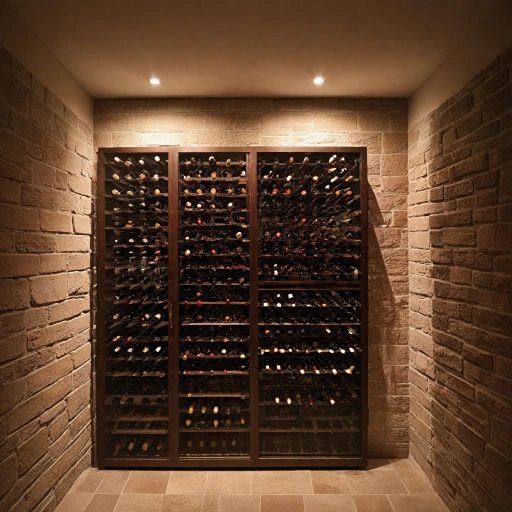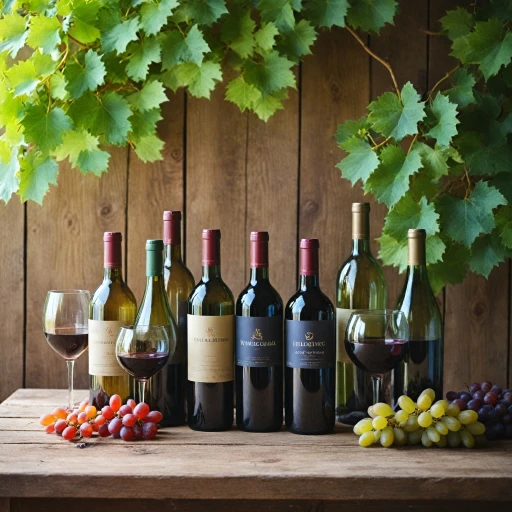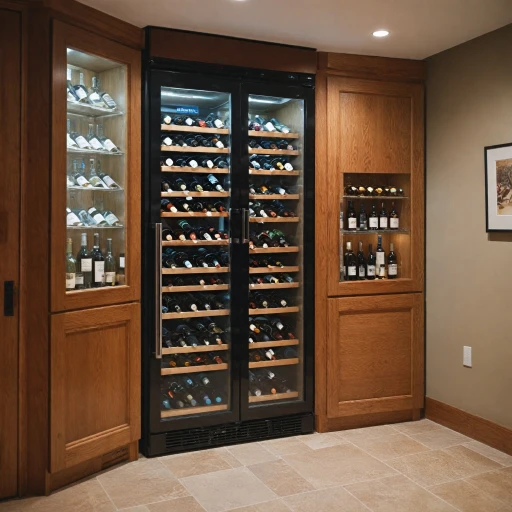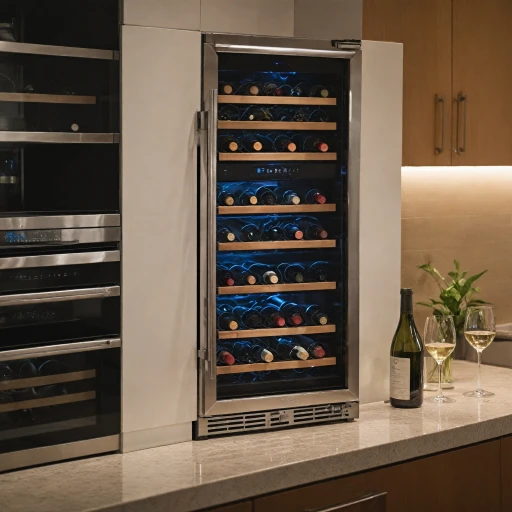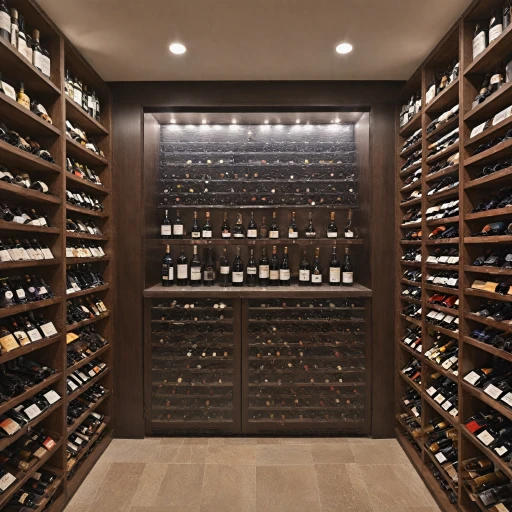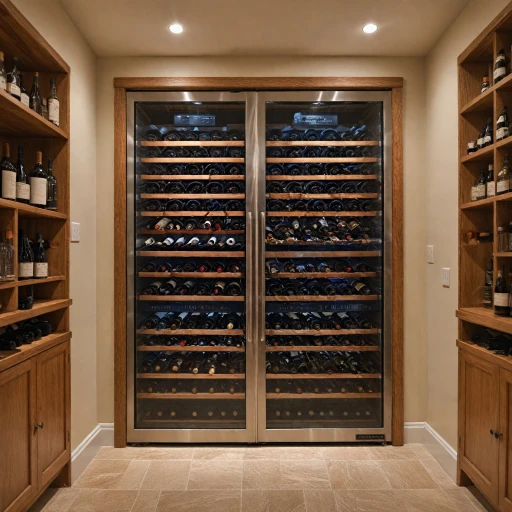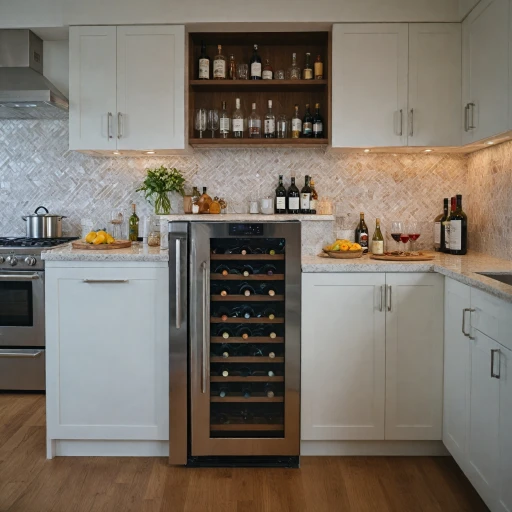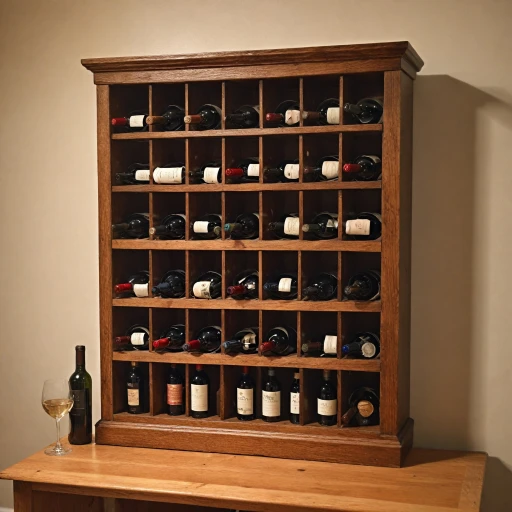
Understanding Wine Cooler Units
Delving into Wine Cooler Mechanics
When it comes to preserving the flavor and quality of your wine collection, choosing the right wine cooling units becomes essential. These specialized units are not just about keeping your bottles cold but are integral to maintaining the delicate balance between temperature and humidity that wine requires for optimal storage. With a variety of cellar cooling systems available, understanding their core functionalities can significantly aid in selecting a unit that fits your needs.
Temperature Regulation: At the heart of any wine cooler unit is its ability to maintain a stable temperature, a critical aspect of wine storage. Cooling units, such as whisperkool and breezaire wkl, are designed to manage these precise conditions within your wine cellar.
Humidity Control: Ensuring the air inside maintains adequate humidity levels prevents corks from drying out, which could lead to wine spoilage. Consider systems with integrated humidity control features to protect your collection.
Understanding these aspects of wine cooler units is the first step towards building a wine cellar that not only stores but also enhances your collection's potential. As we move through other sections, you’ll learn about key features, various unit types like ductless split systems or fully ducted options, and practical aspects such as energy efficiency and maintenance. For additional guidance on selecting the perfect units, you can explore more resources like this comprehensive guide on buying the perfect cooler cart for your wine storage needs.
Key Features to Look for in Wine Cooler Units
Essential Features for Optimal Wine Cooling
When selecting a wine cooler unit for your wine cellar, understanding the key features is crucial to ensure your wine is stored in optimal conditions. Here are some essential features to consider:
- Temperature Control: Maintaining a consistent temperature is vital for wine storage. Look for units that offer precise temperature settings to accommodate different types of wine.
- Humidity Management: Proper humidity levels prevent corks from drying out, which can spoil the wine. Ensure the unit has a reliable humidity control system.
- Vibration Reduction: Excessive vibration can disturb the sediment in wine bottles. Choose a unit with features that minimize vibrations.
- Noise Levels: A quiet operation is essential, especially if your wine cellar is near living spaces. Consider units with low noise levels for a peaceful environment.
- Energy Efficiency: Energy-efficient units not only save on electricity bills but also contribute to a sustainable environment. Look for models with good energy ratings.
- Size and Capacity: Ensure the unit fits your space and meets your storage needs. Consider the number of bottles you plan to store and the available space in your cellar.
- Design and Aesthetics: The design should complement your wine cellar's decor. Options like ceiling mount or wall-mounted units can save space and enhance the cellar's appearance.
By focusing on these features, you can choose a wine cooler unit that not only preserves your wine but also enhances your wine cellar's functionality and aesthetics. For more insights on installation and maintenance, explore further sections of this guide.
Types of Wine Cooler Units
Exploring Different Wine Cooler Configurations
When it comes to selecting the right wine cooler units for your cellar, understanding the various configurations can be a daunting task. With a myriad of options available, it becomes crucial to pinpoint the system that best meets your specific needs. Here's a closer look at some common types of wine cooler units you might consider:
- Self-Contained Units: These are the simplest systems available, comprising both the evaporator and condenser in a single unit. They are relatively easy to install and are ideal for smaller wine cellars. Popular models include the Breezaire WKL series, known for their compact design and efficiency.
- Split Systems: Unlike self-contained units, split systems separate the evaporator and condenser, allowing for more flexible installations. Take advantage of this configuration to reduce noise levels and improve cooling efficiency. Brands like WhisperKool and Wine Guardian specialize in offering robust split system options.
- Fully Ducted Systems: These systems offer the most seamless integration, with all components hidden away, creating a noise-free environment. Although more complex to install, fully ducted solutions provide optimal temperature control for larger wine cellars.
- Ductless Split Systems: Ideal for those looking for minimal alterations to their space, ductless split systems save on ceiling space and wall modifications while still offering significant cooling benefits. Wine Guardian's ductless split models are well-reviewed for their excellent performance.
Each cooling configuration brings its unique advantages and challenges. Evaluating the size of your wine cellar, your climate control needs, and your budget are essential steps when choosing the right system. Remember that the optimal setup could also involve a combination of units to stabilize your wine storage conditions, ensuring your collection matures gracefully. To dive deeper into selecting the right unit for your cellar, consider consulting further resources such as this comprehensive guide.
Energy Efficiency and Noise Levels
Factors Influencing Energy Consumption and Quiet Operation
When selecting a wine cooler unit for your wine cellar, energy efficiency and noise levels are essential factors to consider. The cooling system's efficiency directly impacts your electricity bills and the environmental footprint of your wine storage solution. Understanding how different types and brands perform in terms of energy consumption and sound levels can help make the best choice for your setup.
Evaluating Energy Efficient Options
Energy efficiency in wine cooling units is primarily determined by the type of cooling system in use. Units such as the WhisperKOOL series and the Wine Guardian fully ducted systems are known for their efficient operation. These units ensure consistent temperatures in your wine cellar while minimizing energy use. Several products have variable speed compressors that adapt energy usage according to the temperature needs, providing excellent efficiency.
It's also beneficial to look for systems with modern climate control technologies, including wine cooling split systems and ductless solutions. These options are engineered to maintain optimal temperature and humidity levels in a sustainable manner, making them ideal for long-term energy savings.
Importance of Low Noise Levels
No one wants a noisy cooling unit disrupting the serene environment of their wine cellar. Therefore, noise levels should be factored in when browsing units. Units like the Breezaire WKL and WhisperKOOL Platinum Split are renowned for their quiet operation, employing advanced insulation and whisper-quiet fans to keep sound to a minimum. Choosing a system engineered for silence will enhance your cellar experience.
If the wine cellar is adjacent to living areas, considering ceiling mount or wall-mounted units might provide quieter solutions given their design to disperse sounds carefully.
By taking into account both energy efficiency and noise levels, choosing the right cooling unit for your wine cellar becomes a more informed process, ensuring your precious wine collection is stored in an optimal environment, undisturbed by excess noise and unnecessary energy consumption.
Installation and Maintenance Tips
Installation Insights for Optimal Performance
When it comes to installing your wine cooler units, precision and planning are key. Whether you're opting for a ductless split system or a fully ducted unit, ensuring proper installation will maximize efficiency and longevity. Here are some essential tips to consider:
- Location Matters: Choose a location that allows for adequate ventilation. Avoid placing the unit near heat sources or in direct sunlight, as this can affect the cooling efficiency.
- Professional Installation: For complex systems like split systems or ceiling mount units, hiring a professional installer is recommended. This ensures that the unit is set up correctly and safely.
- Proper Sealing: Ensure that the wine cellar is properly sealed to maintain a consistent temperature. This is crucial for the effectiveness of any cooling system.
- Electrical Requirements: Verify that your electrical system can handle the power requirements of the cooling unit. This is particularly important for larger units like the WhisperKOOL or Breezaire WKL series.
Maintenance Tips for Longevity
Regular maintenance is essential to keep your wine cooler units running smoothly. Here are some maintenance tips to ensure your wine storage remains optimal:
- Regular Cleaning: Clean the filters and vents regularly to prevent dust buildup, which can hinder performance.
- Check for Leaks: Inspect the unit for any signs of leaks, especially in split systems. Addressing leaks promptly can prevent more significant issues.
- Monitor Temperature: Regularly check the temperature settings to ensure they remain consistent. Fluctuations can affect the quality of your wine.
- Annual Servicing: Consider an annual service check by a professional to ensure all components are functioning correctly.
By following these installation and maintenance tips, you can ensure that your wine cellar cooling units operate efficiently, preserving your wine collection in perfect condition.
Budget Considerations and Recommendations
Balancing Cost and Quality
When selecting a wine cooler unit for your wine cellar, budget considerations are crucial. While it might be tempting to opt for the least expensive option, it's important to balance cost with quality and features. A higher initial investment in a reliable cooling system can save you money in the long run by reducing maintenance costs and ensuring your wine is stored at the optimal temperature.
Understanding Price Ranges
Wine cooler units come in a wide range of prices, influenced by factors such as brand, capacity, and technology. For instance, ductless split systems and fully ducted systems like those from WhisperKOOL and Wine Guardian often come at a premium due to their advanced features and efficiency. On the other hand, self-contained units like the Breezaire WKL series might offer a more budget-friendly option, though they may not provide the same level of precision in temperature control.
Evaluating Product Reviews
Before making a purchase, it's wise to consult reviews of the unit you're considering. Look for feedback on the unit's performance, noise levels, and energy efficiency. Reviews can provide insights into the real-world performance of a cooling unit, helping you make an informed decision. Pay attention to comments about the unit's reliability and any recurring issues that might affect your wine storage.
Considering Long-Term Costs
Beyond the initial unit price, consider the long-term costs associated with your wine cooler. Energy efficiency is a key factor, as more efficient units can lead to significant savings on your electricity bill. Additionally, consider the cost of potential repairs and maintenance. Some systems, like split systems, might require professional installation and servicing, which can add to the overall cost.
Recommendations for Different Budgets
- Entry-Level: For those on a tight budget, consider a self-contained unit. These are typically more affordable and easier to install.
- Mid-Range: If you have a moderate budget, a ductless split system offers a good balance of performance and cost, providing efficient cooling without the need for extensive ductwork.
- High-End: For those willing to invest more, fully ducted systems or advanced split systems offer superior performance and can be integrated seamlessly into your wine cellar design.

